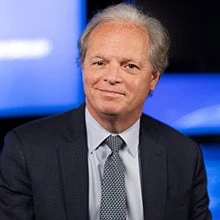
I recently visited Songdo to open Korea Week and celebrate the 60 th year of a successful partnership between Korea and World Bank Group.
Our partnership has come full circle since 1955, when Korea became the 58th member of the International Bank for Reconstruction and Development (IBRD).
Back then, two years after the war, Korea was one of the world’s poorest countries with more than 60 percent of the population living in extreme poverty. Foreign aid -- virtually the only source of capital – financed about 90 percent of the budget and more than 70 percent of imports.
Then came what is called “the Miracle of the Han River,” when Korea -- a country with no natural resources emerging from years of occupation and then a devastating war -- grew over decades into the world’s 13th largest economy.
Korea’s nominal GDP expanded from $68 billion in 1980 to $1.4 trillion in 2014, a 21-fold increase that was the fastest among the Asian Tigers after Singapore.
Just looking around provides evidence of Korea’s success. Korean ships, cars, motorbikes, mobile phones, laptops and flat screen televisions are used everywhere, and companies such as Samsung, LG, Kia and Hyundai are household names.
Such growth also has been remarkably inclusive, with absolute poverty virtually eliminated. And as the first aid recipient to become an aid donor, Korea now contributes almost $2 billion a year in official development assistance (ODA).
There are lessons in Korea’s story. A major one is how economic growth included shared prosperity across the Korean population.
Between 1970-1979, the ratio of rural household income to urban household income grew from 67 percent to 104 percent. By the beginning of the 1980s, the income of traditionally poorer rural households was on par with those of urban households.
Another key factor was Korea’s focus on education, which created a highly trained labor force and the foundation for the country’s economic success.
By 1960, primary school enrollment increased to 86 percent from 60 percent in 1953, and literary rose to 72 percent from 22 percent in 1945.
Today, Korea’s secondary school students top Organization for Economic Cooperation and Development rankings, and more than 70 percent of Koreans undertake post-graduate level education.
At the same time, Korea has been at the forefront of innovation and risk taking, combining efforts of public and private sector actors. Examples include its growth into a leading steel and semiconductor producer, as well as an automobile industry that exports complete vehicles produced domestically with no involvement by large multinational car companies.
No one can claim to have forseen such a success story, including the World Bank, which warned in the early 1960s of “the intractable nature of Korea’s basic economic weakness.”

At that time, Korea was an aid recipient from the World Bank Group. Our first project expanded the Yeongdong railway line linking Gyeongsang and Gangwon provinces with assistance from the International Development Association (IDA), the World Bank fund for the poorest countries.
Meanwhile, Korea joined the International Finance Corporation – the Bank’s private sector development arm – in 1964.
The first IFC project was approved in 1968 to establish the Korea Development Finance Corporation (KDFC) – the nation’s first private industrial investment institution.
With IFC assistance, Korea’s LG Electronics – formerly known as Goldstar—expanded its opertations to employ 82,000 people with global sales in 2013 of $53 billion.
In a reversal of fortune beneficial to all, Korea now contributes hundreds of millions of dollars each year to the IDA.
Through its membership in IDA and IFC, Korea also shares its unique development experience with other countries and supports development projects in low-income countries.
Building on 60 years of solid partnership, the World Bank Group is ready to support Korea’s ambition and vision of becoming a key global player in development – particularly in the areas of health, education and gender.
As the Koreans say, “life starts at 60.” We are proud to have contributed to Korea’s remarkable journey and hope that Korea Week launched another life cycle for our partnership.


Join the Conversation